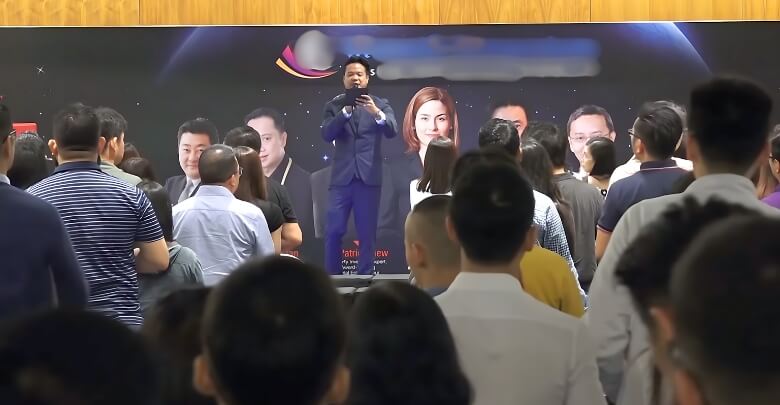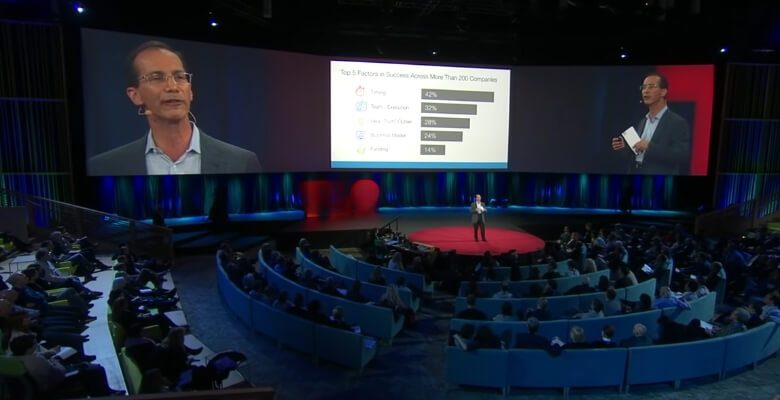International conferences are invaluable platforms for professionals to exchange knowledge, network, and stay updated on the latest trends in their field. But with so many options available, how to attend the right international conferences that will truly benefit you?
You can attend the right international conferences by researching conferences relevant to your field, checking organizer websites, verifying speaker and attendee credentials, and considering networking opportunities. Register early to secure your spot and plan your travel arrangements.
By following these steps, you can maximize your conference experience. Read on to discover more tips and strategies for attending the right international conferences.
What Should You Know About International Conferences?
International conferences come with valuable opportunities for professional growth and networking. Attendees can gain insights from industry experts and peers. Here are key points to understand about these events.

International conferences attract professionals from various fields worldwide. They provide a platform for sharing research, innovations, and best practices. When you get invited to international conferences, you can learn about the latest trends and advancements. The diverse attendee base increases the learning experience.
Networking is a crucial aspect of international conferences. Building connections with like-minded professionals can lead to collaborations and new opportunities. Engaging in discussions improves your knowledge and broadens your perspective. These interactions can significantly impact your career.
Planning is essential for a successful conference experience. Research the schedule and prioritize sessions relevant to your interests. Arrive early, participate actively, and make the most of networking events. Proper preparation ensures you maximize the benefits of attending.
Different Types of International Conferences
International conferences come in various formats; each serves specific interests and professional needs. Understanding the different types of international conferences can help you choose the ones that best align with your goals and expertise. From academic symposia to industry expos, each type offers unique opportunities for learning, networking, and collaboration. Here’s an overview of the different types of international conferences you might encounter:
Academic Conferences
Academic conferences focus on presenting research findings and advancements. Scholars and researchers share their work through presentations and papers at an international academic conference. Academics from different institutions collaborate at these events. Attendees often gain insights into the latest developments in their field.
Business Conferences
Business conferences are designed for industry professionals and entrepreneurs. They cover topics like market trends, innovations, and best practices. Networking opportunities at these events can lead to valuable business partnerships. They often feature keynote speakers and panel discussions.
Medical Conferences
Medical conferences gather healthcare professionals to discuss new treatments and medical technologies. They offer workshops, seminars, and hands-on training sessions. Attendees can earn continuing education credits while staying updated on medical advancements. These conferences often feature renowned medical experts.
Technology Conferences
Technology conferences focus on emerging technologies and digital innovations. They attract tech enthusiasts, developers, and industry leaders. Sessions often include product launches, demonstrations, and technical workshops. Participants can explore the latest trends in technology and software development.
Environmental Conferences
Environmental conferences address issues related to sustainability and climate change. Experts discuss conservation strategies, renewable energy, and environmental policies. These events aim to raise awareness and promote action for environmental protection. Attendees include scientists, policymakers, and activists.
Cultural Conferences
Cultural conferences celebrate the diversity of cultures and traditions. They feature performances, exhibitions, and discussions on cultural heritage. These events promote intercultural understanding and appreciation. Participants can experience the richness of different cultural expressions.
How to Attend the Right International Conferences?
Attending the right international conferences can significantly improve your professional growth and career prospects. To maximize the benefits, start with an overview of international conference to understand the various types and their relevance to your field. Selecting the most suitable event involves evaluating factors such as the conference’s focus, speaker quality, and networking opportunities. Follow this step-by-step guide to ensure you choose and prepare for the best events in your field:
Research Relevant Conferences
Identify conferences that align with your field by researching online. Utilize academic databases and professional networks. Look for events that match your interests and professional goals. Consider the average registration fee for conferences in your field when making your choice.
Check Organizer Websites
Visit the websites of conference organizers like Global Conference Alliance Inc. Review the event details, topics, and schedules. Organizers often provide comprehensive information about their conferences.
Verify Speaker Credentials
Investigate the credentials of speakers and presenters. Ensure they are experts in their field. Credible speakers increase the value of the conference content.
Assess Attendee Profiles
Look into the profiles of past attendees. Networking potential can be gauged by understanding the audience composition. Attending conferences with like-minded professionals is beneficial.
Consider Networking Opportunities
Assess the networking opportunities offered at the conference. Check for scheduled social events and networking sessions. Effective networking can lead to valuable professional connections.
Register Early
Secure your spot by registering as soon as possible. Early registration often comes with discounts. It also ensures you have ample time to plan other logistics.
Plan Travel Arrangements
Make your travel arrangements well in advance. Book your flights, accommodation, and transportation. Proper planning can save time and reduce last-minute hassles.
Benefits of Attending the International Conference
The benefits of attending international conferences are numerous, whether you are a professional or an enthusiast. To get the most advantages of international conferences, it’s essential to participate actively in the discussion and learning sessions there. Here are the diverse benefits of attending international conferences:
Networking Opportunities
Conferences are excellent for meeting industry professionals. Building connections can lead to collaborations and job opportunities. Engaging with peers helps in sharing knowledge and ideas. Networking often results in long-lasting professional relationships.
Learning from Experts
International conferences feature speakers who are leaders in their fields. Attendees gain insights from their expertise and experiences. These sessions often cover innovative research and advancements. Learning from experts helps you stay updated with industry trends.
Exposure to New Ideas
Conferences introduce attendees to innovative concepts and practices. Presentations and discussions provide fresh perspectives. Exposure to diverse viewpoints can inspire new ideas. This environment encourages creativity and problem-solving skills.
Professional Development
Attending conferences contributes to professional growth. Workshops and training sessions increase skills and knowledge. Continuing education credits are often available. Professional development through conferences is recognized and valued by employers.
Access to Resources
Conference attendees often receive exclusive access to research papers and materials. These resources are valuable for ongoing learning. Exhibitors showcase the latest products and technologies. Access to such resources can benefit your work and projects.
Improving Your Resume
Participation in international conferences adds value to your resume. It demonstrates a commitment to your field. Employers appreciate candidates who seek continuous improvement. Listing conferences attended can make your resume stand out.
Cultural Exchange
International conferences offer the chance to experience different cultures. Interacting with global peers enriches your understanding of diverse practices. Cultural exchange encourages tolerance and global awareness. It broadens your personal and professional horizons.
How to Make the Most of International Conference Experience?
The experience of attending an international conference can be a turning point for your career. To maximize the benefits, you should approach it strategically. Here are some practical tips to help you make the most of your time.
- Plan Ahead: Research the conference schedule and plan your sessions. Prioritize the ones most relevant to your field and interests.
- Network Actively: Engage with fellow attendees during breaks and social events. Exchange contact information and follow up with new connections after the conference.
- Participate in Discussions: Take part in Q&A sessions and discussions. Asking questions can deepen your understanding and make you more memorable to speakers and peers.
- Visit Exhibitor Booths: Spend time at exhibitor booths to learn about new products and technologies. Collect materials and ask questions to gather valuable information.
- Take Notes: Keep detailed notes during sessions and presentations. Summarize key points and ideas that you can apply to your work.
- Reflect and Apply: After the conference, review your notes and reflect on what you learned. Implement new ideas and strategies into your professional practice.
FAQs for How to Attend the Right International Conferences?
Your professional growth and networking opportunities can be greatly improved by attending the right international conferences. Here are some frequently asked questions and their detailed answers to help you manage this process effectively.
What Should I Consider When Choosing an International Conference?
Consider factors such as the conference’s relevance to your field, the credentials of the speakers, and the networking opportunities available. Additionally, review the event’s schedule and topics to ensure they align with your interests. Assess the location and logistics as well.
How Early Should I Register for an International Conference?
Register as early as possible to secure your spot and take advantage of early-bird discounts. Early registration also allows you more time to plan your travel and accommodations. It can also help you prepare better for the event.
How Can I Verify the Credentials of Conference Speakers?
Check the speakers’ professional backgrounds, previous speaking engagements, and publications. Many conferences provide detailed biographies of their speakers on their websites. You can also search for speakers on professional networking sites like LinkedIn.
What Are Effective Networking Strategies at Conferences?
Engage actively with attendees during sessions, breaks, and social events. Prepare business cards and have a brief introduction about yourself. Follow up with new connections after the conference to build lasting relationships.
What Should I Look for in Conference Logistics?
Consider the conference location, accessibility, and available amenities. Review the schedule to understand the timing of key sessions and networking events. Ensure you have all necessary travel documents and accommodations arranged.
Last Word
The opportunity to learn, network, and grow at international conferences can significantly increase your professional journey. Making the most of these events requires proper planning and preparation. Verify speaker credentials and evaluate networking opportunities. Register early to avoid last-minute hassles.
Remember that how to attend the right international conferences involves more than just showing up; it requires a strategic approach. Attendees should engage with fellow attendees, participate in discussions, and visit exhibitor booths. You can gain new opportunities and collaborate with others by taking these actions.
The purpose of international conferences goes beyond knowledge exchange; they are platforms for professional development and cultural exchange. By applying the strategies and tips outlined here, you can fully maximize the benefits of these events, making a lasting impact on your career and personal growth.







